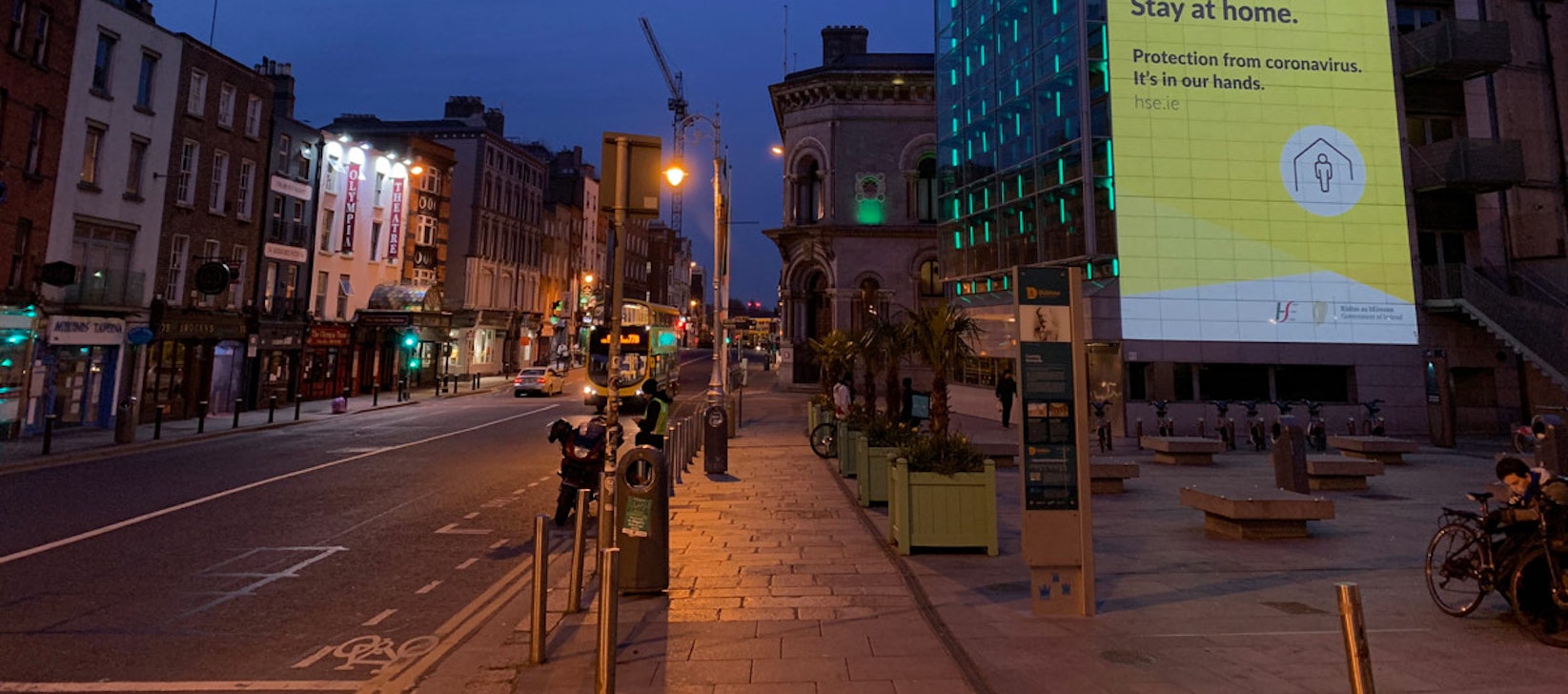One of the most striking things to emerge from the latest Your Dublin Your Voice survey is the extent to which the COVID-19 restrictions have seen technology become central to our lives.
Nowhere is this clearer than in the transition to working from home. 75% indicated that they currently remote work on a daily basis compared to 6% prior to the restrictions. This has helped people particularly in Professional Services, Public Administration, Education and the Creative Industries maintain at least a portion of their incomes. It may also go some way to explaining why the survey shows that people are more worried about the broader economy (60%) than their own employment situation (17%).
Education has also adapted quickly with 94% of students2 indicating that they are remote learning. This appears to be a global trend with, for example, Harvard Summer School being hosted entirely online this summer. This dramatic change to the traditional delivery method of mainly face-to-face education has potentially positive implications for accessibility.
Necessity has seen an increase in people getting prepared meals, groceries, alcohol and medicines home delivered. Within this, prepared meals and groceries are the most availed of with 43% and 37% of people respectively getting deliveries at least once a week. This is a significant increase from a December 2018 Your Dublin Your Voice survey where only 5% bought meals for delivery and 4% groceries.
Technology is also playing a large role in our leisure pursuits with more than half watching streamed TV and interacting on social media more. However, both of these were some way behind old fashioned baking where 75% were doing more. There is obviously still room even in our locked down lives for real activities!
The digitalisation of many aspects of our lives has been supported by widespread access to technology. The majority of households have numerous devices, with laptops and smart phones most prevalent. 92% have fixed line broadband with 75% rating it good or very good.
This is positive for the economy, with the OECD rating regions that have a high share of teleworkable jobs as having a lower share of jobs at risk3. However, there are large sections of the economy where digitalisation makes little difference and just over a fifth of respondents have experienced a change in their employment status. Within this 15% are receiving temporary income support while others have seen their hours reduced, work pipelines dry up and invoices go unpaid.
Crises often have profound changes on society. COVID-19 has clearly prompted the acceleration of existing digitalisation trends. How much of this is permanent remains to be seen but it seems likely that there will be lasting implications for the way we work, learn and shop.
Sign up to the Your Dublin Your Voice opinion panel here.





